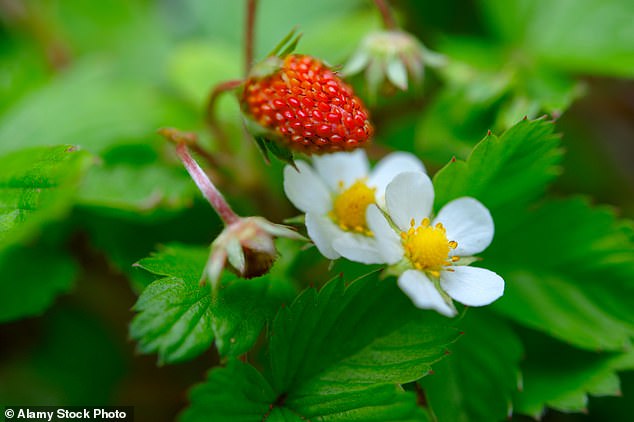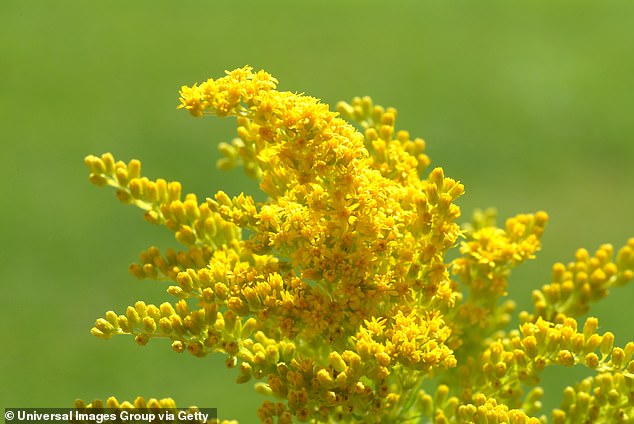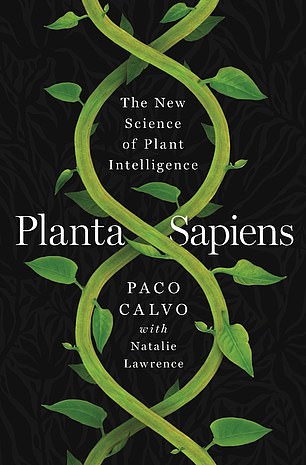Plants have been observed to interact with their environment in a way that one scientist says is evidence that they are conscious.
Paco Calvo, a professor at the University of Murcia in Spain, has been researching the intelligence and problem-solving skills of plants for years and found that the mimosa tree appears to “learn from experience” when it stops folding itself up.
“In psychology, this is the most fundamental form of learning,” Calvo told DailyMail.com.
“This pattern of folding and subsequent non-folding is consistent with the idea that this plant learned something through experience rather than through its genes.”
The professor also discovered that other plants communicate with each other through chemicals, solve problems, and even seem to have memories.
Mimosas can also “learn” that a certain touch is safe
Many scientists define intelligence as a central nervous system, where electrical signals transmit messages to other nerves to process information.
Instead, plants have a vascular system, a network of cells that transports water, minerals and nutrients, thus promoting growth.
“We see plants as resources for fuel, oxygen, textiles and food, but we do not respect them for their own sake,” Calvo said.
“If we can understand another form of intelligence that does not require a brain, we may be able to understand what unites us all in the tree of life.”
“We have to find the master key.”

Calvo is a professor at the University of Murcia in Spain, where he heads the Minimal Intelligence Lab (MINT Lab).
Some plants seem to “remember” droughts and store water more efficiently than plants that have not experienced drought. Strawberries can also be trained to associate light with patches of nutrients, the professor said.
He further explained that plants also learn to time the release of pollen to match the presence of pollinators such as bees.
Researchers have also speculated that plants may be able to count, make decisions, recognize their relatives, and even remember events.
The problem is that humans have a self-contained understanding of intelligence that focuses on animals with brains and causes us to ignore other possible intelligences and forms of consciousness.
“Our view is that you have to be an animal, otherwise you can’t be smart. That’s very short-sighted,” Calvo said.
A recent study at Cornell University found that when goldenrods are eaten by beetles, they release a chemical that tricks the insects into thinking the plant is damaged and a poor food source—causing nearby goldenrods to do the same.
Andre Kessler, a chemical ecologist and professor at Cornell University, said: “This would fit our definition of intelligence.”

Wild strawberries can “learn” to associate light with nutrient patches
“Depending on the information it receives from the environment, the plant changes its standard behavior.”
Calvo is among a growing number of scientists calling for a new understanding of how plants solve problems and communicate. He said the way they do this is in many ways similar to the way humans “think,” except there is no central brain.
“Plant cells fire spikes of voltage in the form of action potentials, just like brain cells. If you touch the Venus flytrap’s antennal hair twice and it snaps shut, that’s an action potential,” he said.
“Just because you don’t have a brain or nervous system doesn’t mean you can’t communicate electrochemically!”
Calvo has also proposed that plants “think” using their vascular system, a network of cells that transport water, minerals and nutrients to help them grow.
He noted that it is also used to transmit information.

A recent study at Cornell University found that when goldenrods are eaten by beetles, they release a chemical that tricks the insects into thinking the plant is damaged and a poor food source – causing nearby goldenrods to do the same.
“Just because you don’t have a brain or a nervous system doesn’t mean you can’t have some form of electrochemical communication,” the professor continued.
“Electrical signals are sent through the vascular system. So your plant not only responds where it was stimulated, but it can also respond at the other end of the plant.”
“Plants don’t have brains, but they still use electrochemical communication in their own time frame to stay alive.”
Calvo said the same neurotransmitters present in the human brain (such as glutamate or GABA) are also present in plants – and are sometimes used in the same way.

Paco Calvo argues that plants have consciousness, but in a completely different way
“So if you have a plant and a caterpillar is nibbling on a leaf, the plant can use the neurotransmitter glutamate to trigger a wave of calcium that spreads throughout its stem and leaves, creating a chemical defense weapon to ward off the caterpillar,” he explained.
Calvo said that plants must have a different survival strategy than humans because they are rooted in the soil – so their strategy is to “divide and conquer.”
“So if you try to grab or attack an animal, it can fight back,” he explained.
“With factories, none of this is possible, so their strategy is to really decentralize everything.”
“If you chop off a branch, a new branch grows back. That doesn’t happen to me if you chop off my arm.”
Research into plant intelligence could be crucial for our self-understanding and the fight against climate change.
“We see plants as resources for fuel, oxygen, textiles and food, but we do not respect them for their own sake,” Calvo said.
“If we can understand another form of intelligence that does not require a brain, we may be able to understand what unites us all in the tree of life. We need to find the master key.”